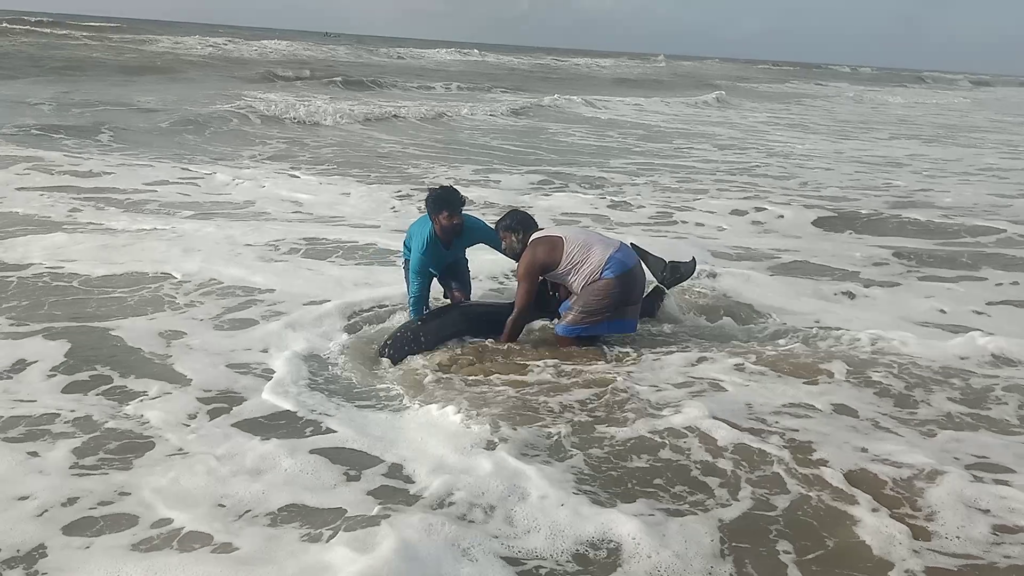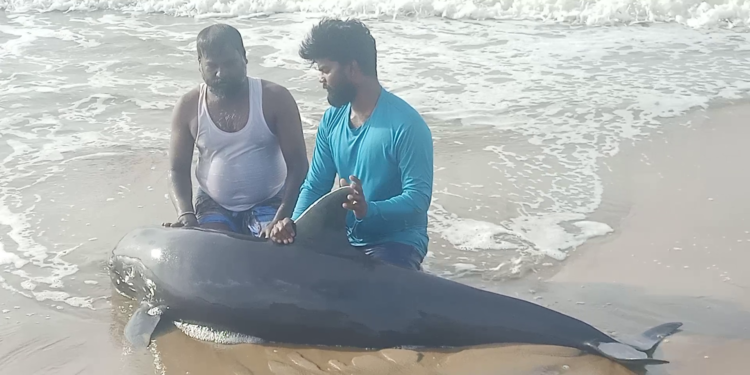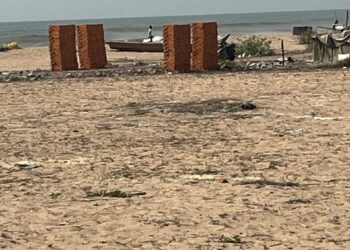Sub-adult Melon Headed whale struggling in the intertidal waters off Perunduravu fishing village was rescued by TREE Foundation’s Sea Turtle Protection Force, south of Kalpakkam on Aug.16. At 7 am, the whale (Peponocephala Electra) was discovered by M.Pandiyan and S.Vignesh, members of the TREE Foundation’s Sea Turtle Protection Force (STPF), struggling in the intertidal waters near Perunduravu fishing village.
Vignesh promptly alerted the TREE Foundation Marine Mammal Rescue team and received instructions for the whale’s safe release. The fishermen identified the marine mammal as a Melon Headed whale from the photos and videos they took. Despite their initial efforts to guide the whale back into deeper waters, it repeatedly stranded itself. Understanding the urgency, Pandiyan and Vignesh carried the whale beyond the breakers and successfully released it into the sea. They observed from the shore for an hour to ensure the whale did not re-strand, and it eventually swam away.

The rescued whale, measuring about 5 feet in length and weighing over 100 kgs, had sustained injuries, including wounds on the tip of its snout and a small swelling below the left eye. These injuries are often caused by entanglement in fishing nets, a common threat to marine mammals in the region. The recent increase in purse seine net fishing along the coast following the lifting of a ban has heightened these risks.
Melon Headed whales are small, robust whales primarily found in deep, tropical waters worldwide. They are social animals, often seen in groups of hundreds to over a thousand in deep waters of tropical to warm temperate zones. However, they are rarely sighted at sea, with most data on the species coming from stranded individuals. Studies suggest that these whales feed mainly on cephalopods, such as squids and occasionally on small fish and shrimps.
Melon-headed whales, closely related to pygmy and false killer whales, are often mistaken for them. Like all marine mammals, they are protected under the Marine Mammal Protection Act.
TREE Foundation has been recording cetacean (dolphins, whales, and porpoises) and sea turtle strandings since 2006. Although the cause of death in these strandings is often linked to fisheries interactions, the exact reasons remain under investigation.
The TREE Foundation urges citizens to report any stranded marine animals along the coast by contacting 94440 52242. For further inquiries, please contact TREE Foundation at 94443 06411. Tree Foundation is at No.5/25 Blue Beach Road, Neelankarai, Chennai. Email: [email protected]; Website: www.treefoundationindia.org.











